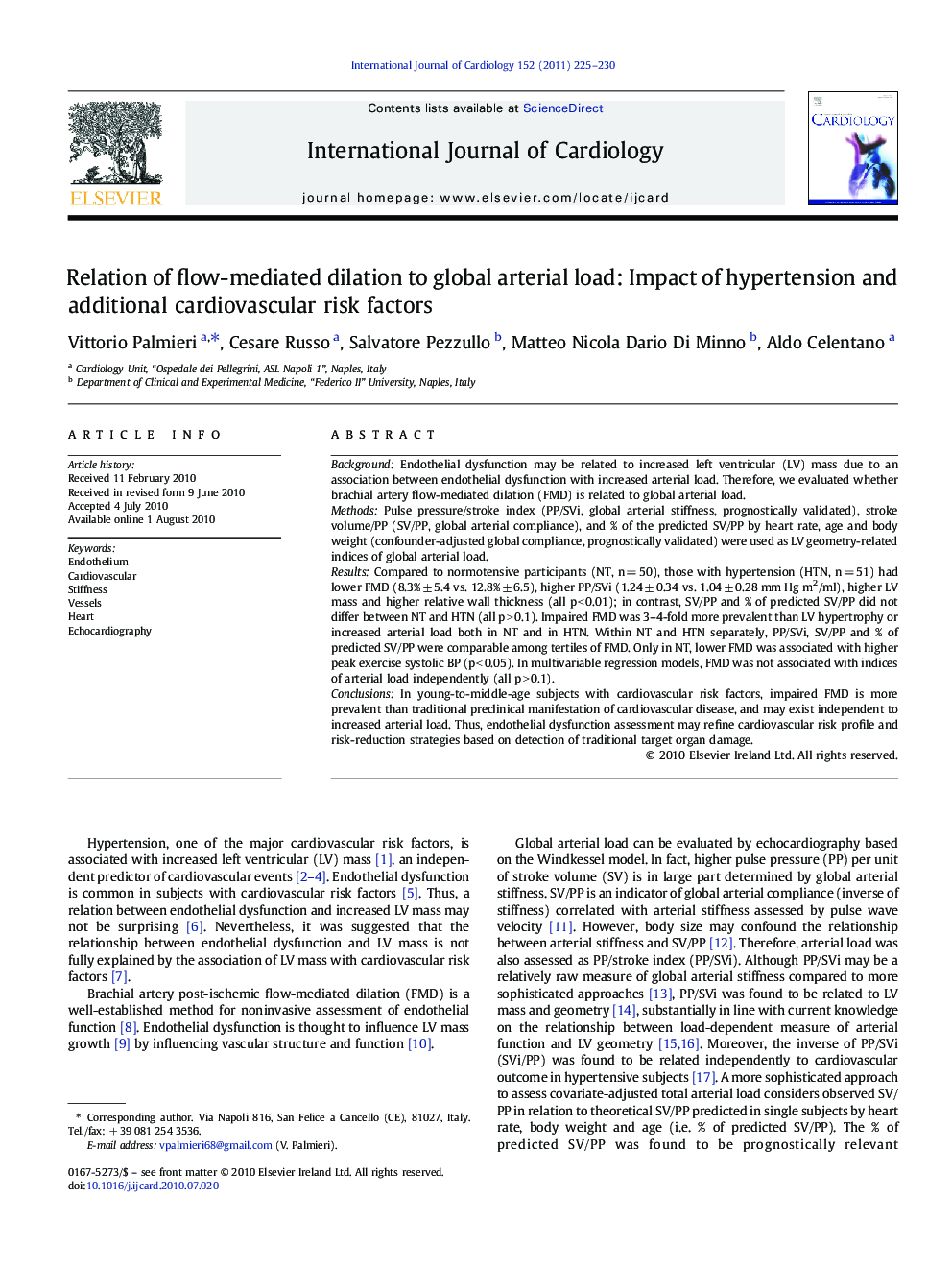| کد مقاله | کد نشریه | سال انتشار | مقاله انگلیسی | نسخه تمام متن |
|---|---|---|---|---|
| 5977716 | 1576265 | 2011 | 6 صفحه PDF | دانلود رایگان |

BackgroundEndothelial dysfunction may be related to increased left ventricular (LV) mass due to an association between endothelial dysfunction with increased arterial load. Therefore, we evaluated whether brachial artery flow-mediated dilation (FMD) is related to global arterial load.MethodsPulse pressure/stroke index (PP/SVi, global arterial stiffness, prognostically validated), stroke volume/PP (SV/PP, global arterial compliance), and % of the predicted SV/PP by heart rate, age and body weight (confounder-adjusted global compliance, prognostically validated) were used as LV geometry-related indices of global arterial load.ResultsCompared to normotensive participants (NT, n = 50), those with hypertension (HTN, n = 51) had lower FMD (8.3% ± 5.4 vs. 12.8% ± 6.5), higher PP/SVi (1.24 ± 0.34 vs. 1.04 ± 0.28 mm Hg m2/ml), higher LV mass and higher relative wall thickness (all p < 0.01); in contrast, SV/PP and % of predicted SV/PP did not differ between NT and HTN (all p > 0.1). Impaired FMD was 3-4-fold more prevalent than LV hypertrophy or increased arterial load both in NT and in HTN. Within NT and HTN separately, PP/SVi, SV/PP and % of predicted SV/PP were comparable among tertiles of FMD. Only in NT, lower FMD was associated with higher peak exercise systolic BP (p < 0.05). In multivariable regression models, FMD was not associated with indices of arterial load independently (all p > 0.1).ConclusionsIn young-to-middle-age subjects with cardiovascular risk factors, impaired FMD is more prevalent than traditional preclinical manifestation of cardiovascular disease, and may exist independent to increased arterial load. Thus, endothelial dysfunction assessment may refine cardiovascular risk profile and risk-reduction strategies based on detection of traditional target organ damage.
Journal: International Journal of Cardiology - Volume 152, Issue 2, 20 October 2011, Pages 225-230